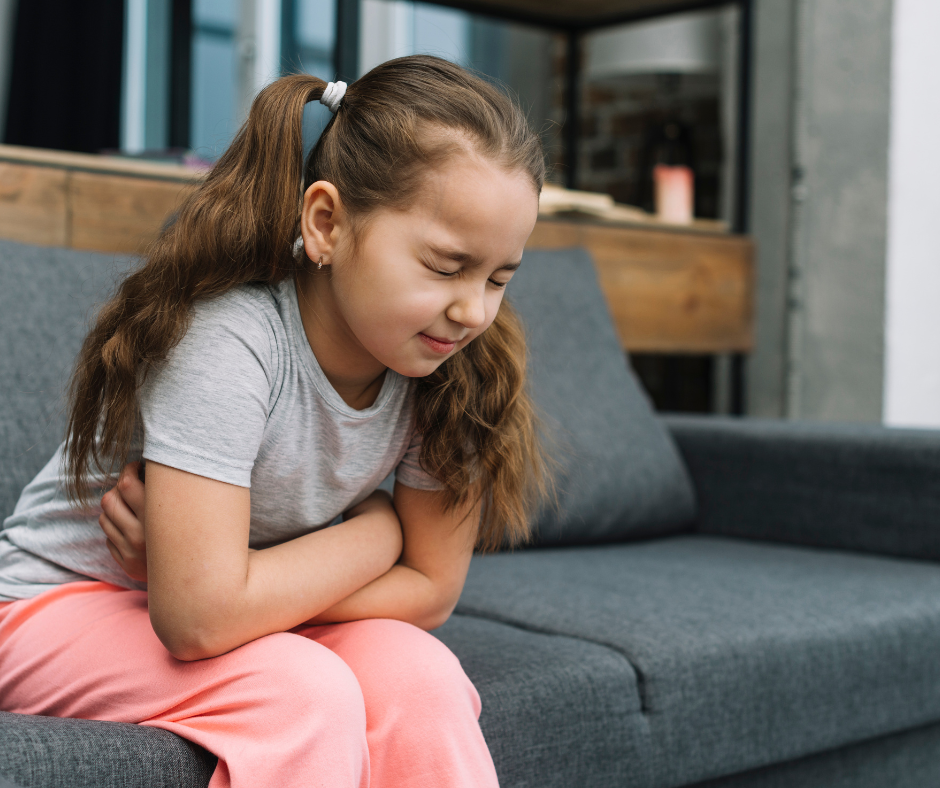Common Causes of Constipation in Children and How to Treat It

As a parent, it is natural to want to alleviate any discomfort or pain that your child may be experiencing as quickly as possible. A common occurrence amongst kids, constipation can cause discomfort, pain and be quite frustrating! So, how do you recognize it and what should you do if you expect your child is constipated?
Approximately 30% of all pediatric patients will experience constipation. We consider a child to be constipated if it has been longer than two days since their last bowel movement, or bowel movements are large, hard, infrequent, or difficult to pass.
In order to prevent constipation or diagnose it, let’s explore what causes constipation.
Common Causes of Constipation in Children
- Diet: A diet low in fiber and fluids can lead to constipation. Children who consume a lot of processed foods, dairy products, and sugary snacks may be at a higher risk of constipation.
- Medical Conditions: Certain medical conditions, such as hypothyroidism, celiac disease, and Hirschsprung’s disease, can contribute to constipation.
- Medications: Certain medications, such as painkillers, antacids, and antidepressants, can cause constipation as a side effect.
- Emotional Factors: Stress, anxiety, and changes in routine can all contribute to constipation in children.
If your child hasn’t experienced a bowel movement in some time or if their movements are difficult to pass, you may want to treat them for constipation via one of the following strategies.
Treatment Strategies for Constipation in Children
While the treatment of constipation in children depends on the severity of the condition and the underlying cause, here are some of the most effective treatment strategies:
- Diet Modification: Encourage your child to eat a diet rich in fiber and fluids. High-fiber foods such as fruits, vegetables, whole grains, and legumes can help soften stools and make them easier to pass. Drinking plenty of fluids can also help prevent constipation.
- Exercise: Encourage your patients to engage in physical activity on a regular basis. Exercise can help stimulate bowel movements and prevent constipation.
- Medications: In some cases, laxatives or stool softeners may be necessary to relieve constipation. However, it is important to use these medications only under the guidance of a pediatrician.
- Make Behavioral Changes: Encourage your child to establish a regular toileting routine. This can help prevent constipation by training the body to have regular bowel movements.
- Address Emotional Factors: If stress or anxiety is contributing to constipation, it is important to address these emotional factors. Encourage your child to engage in stress-reducing activities such as exercise, meditation, or counseling.
In conclusion, constipation is a common problem among children that can be caused by a variety of factors. As a parent, it is important to understand the underlying causes of constipation and work with your pediatrician to develop an individualized treatment plan that is right for your child. When in doubt, it is always better to be safe and treat your child appropriately. If your child is experiencing difficulty going to the bathroom or having frequent and recurrent stomach pain, it is important to rule out any other possible causes with your pediatrician.
For questions, to book an appointment, or any other concerns, Augusta Pediatrics can be reached at (706) 868-0389. The information on this site is not intended or implied to be a substitute for professional medical advice, diagnosis or treatment. All content, including text, graphics, images and information, contained on or available through this web site is for general information purposes only.

Leave a Reply